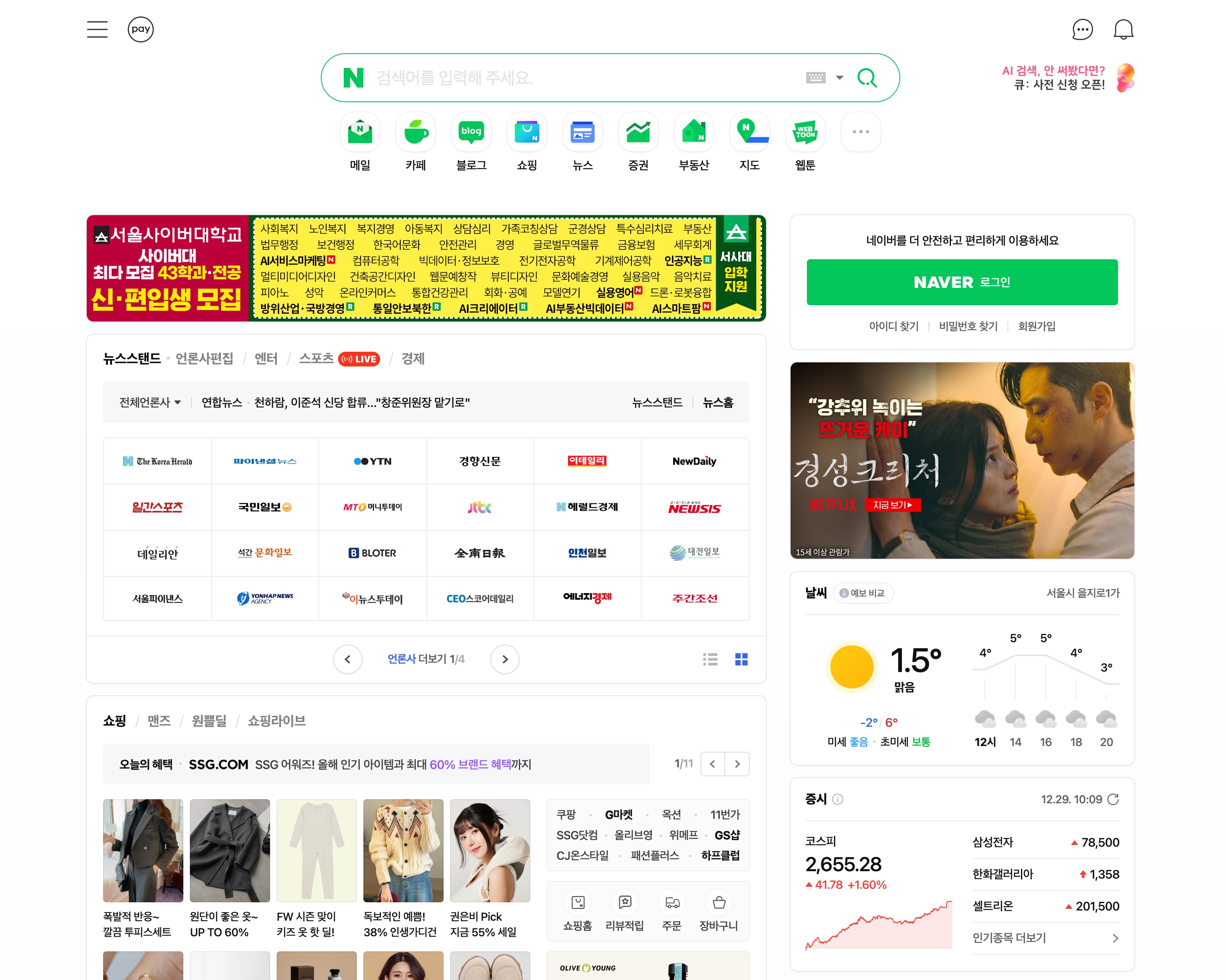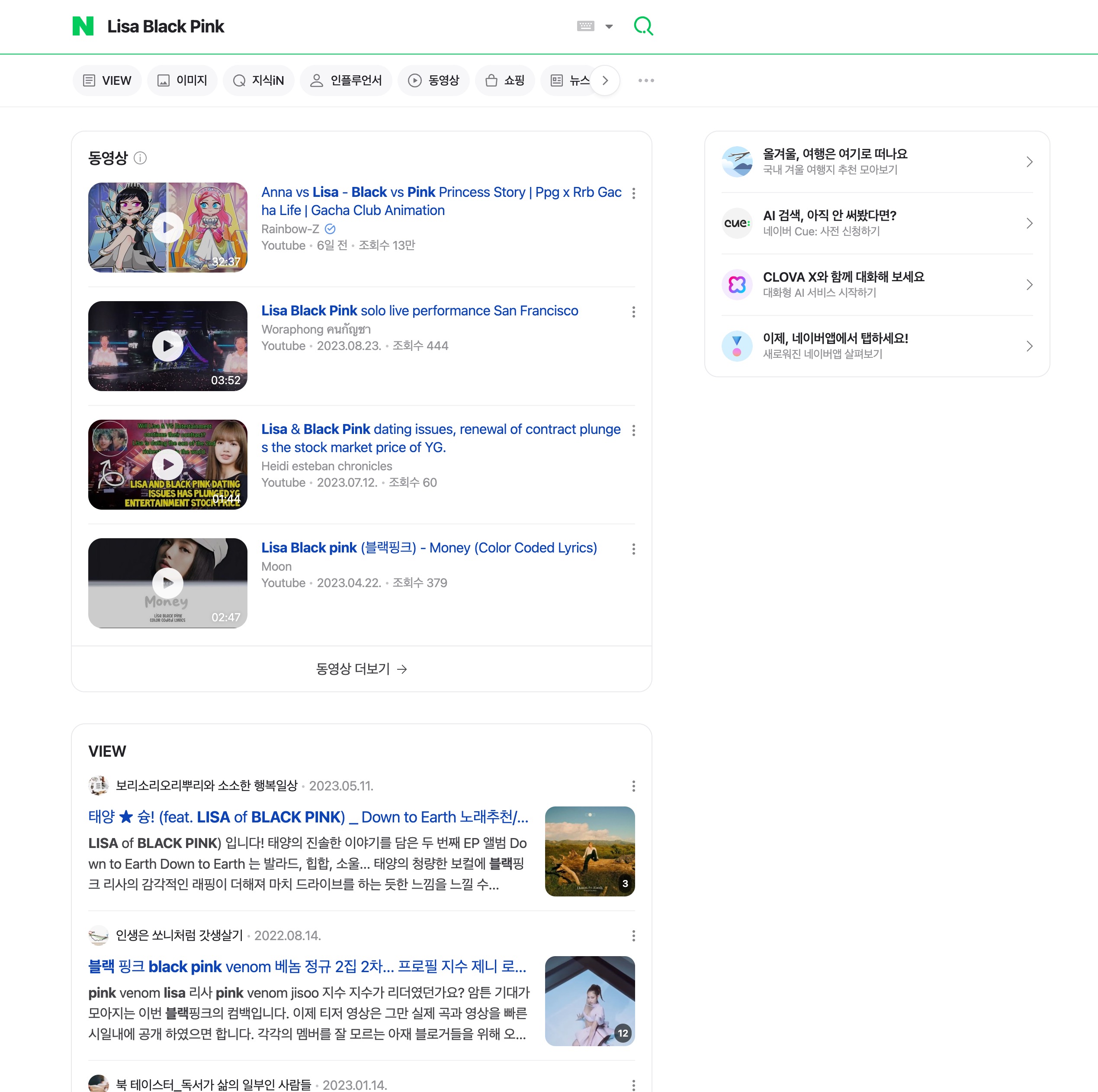Forget global tactics, embrace local strategies! Discover why Google SEO rules don’t apply in Korea, and navigate the Naver labyrinth like a pro
Understanding the Digital Landscape in South Korea: Naver’s Dominance
Google commands approximately 83% of the global search market globally, yet it doesn’t reign supreme everywhere. Local search engines lead the way in countries like South Korea, China, and Russia. Understanding Naver is essential for anyone aiming to advertise, run marketing campaigns, or optimize for search engines in Korea. As the top search engine in Korea, Naver poses unique challenges to the conventional SEO approach.

What is Naver?
In Korea, Naver, originating from the word "navigator," is the premier search engine, eclipsing Google. Launched in 1999 as Korea’s first web portal, Naver has since introduced various services such as Naver Blog, News, and Shopping, securing its position as a dominant force in Korea’s search market. Unlike Google’s minimalist homepage, Naver’s is a bustling hub of news, blogs, shopping, cartoons, mail, and more.
SEO and SEM in Context
Internet marketing generally falls into two categories: SEO (Search Engine Optimization) and SEM (Search Engine Marketing). Both aim to elevate a site’s rank in search engine result pages (SERPs). SEM involves paid strategies like PPC (Pay Per Click) campaigns, while SEO focuses on garnering organic, unpaid traffic. Each search engine employs a unique algorithm to determine rankings based on relevance and trustworthiness.
The Challenges of SEO in South Korea
While SEO is a hot topic globally, its traction in Korea is limited, mainly due to Naver’s challenging environment for traditional SEO. Here’s why SEO in South Korea, particularly with Naver, is complex:
1. Biased Search Results
Unlike global search engines that display a mix of internal and external web pages, Naver favors its services, like Naver Blog. This bias means that using Naver’s platforms often yields better rankings in its SERPs, differing significantly from Google’s more neutral approach.
2. Segregated Web and Blog Results

Naver distinctly separates blogs and websites in its SERPs, usually placing blogs from its platform at the top. This segregation means that for effective SEO, having a Naver blog is almost essential, unlike the integrated approach of combining websites and blogs seen with other search engines.
In SEO, optimally integrating your website and blog, like using www.example.com for your main site and www.example.com/blog for your blog, is beneficial for enhancing brand visibility and facilitating traffic flow between the two. This approach directs visitors from your blog to your main website and consolidates domain authority.
Unlike typical search engines that don’t differentiate between websites and blogs in their results, Naver distinctly separates them into two categories on its search results page. It places a "blog collection" prominently at the top and relegates a "website collection" to the bottom. Hence, being categorized as a blog on Naver offers a significant edge.
However, Naver specifically recognizes blogs that begin with the "blog" subdomain, such as blog.example.com, aligning with its policy to keep blogs and websites distinct. This demarcation is Naver’s method to differentiate between the two, leading to certain limitations.
While these constraints may not always serve the best interests of search engine users, they are in place. Consequently, those aiming to optimize for both Google and Naver must undertake additional efforts to navigate these unique requirements.
3. Lack of Support for Link Tags
Naver doesn’t recognize HTML5 link tags that denote original content, making it challenging to distinguish originals from duplicates. This limitation can lead to a strategy focused more on quantity over quality of posts for better rankings.
4. Ad-Centric Search Results
Naver’s search results often heavily feature ads, sometimes taking up a significant portion of the first page, pushing even top-ranking organic results down and potentially reducing their visibility and traffic.
Navigating SEO in South Korea
Successfully maneuvering SEO in South Korea requires understanding Naver’s unique landscape and integrating strategies that resonate with the local market and culture. While challenging, mastering SEO in this distinct environment can open up a substantial audience for marketers and content creators. For assistance with advertising and marketing in South Korea, consider contacting SEO experts like Tenten.


